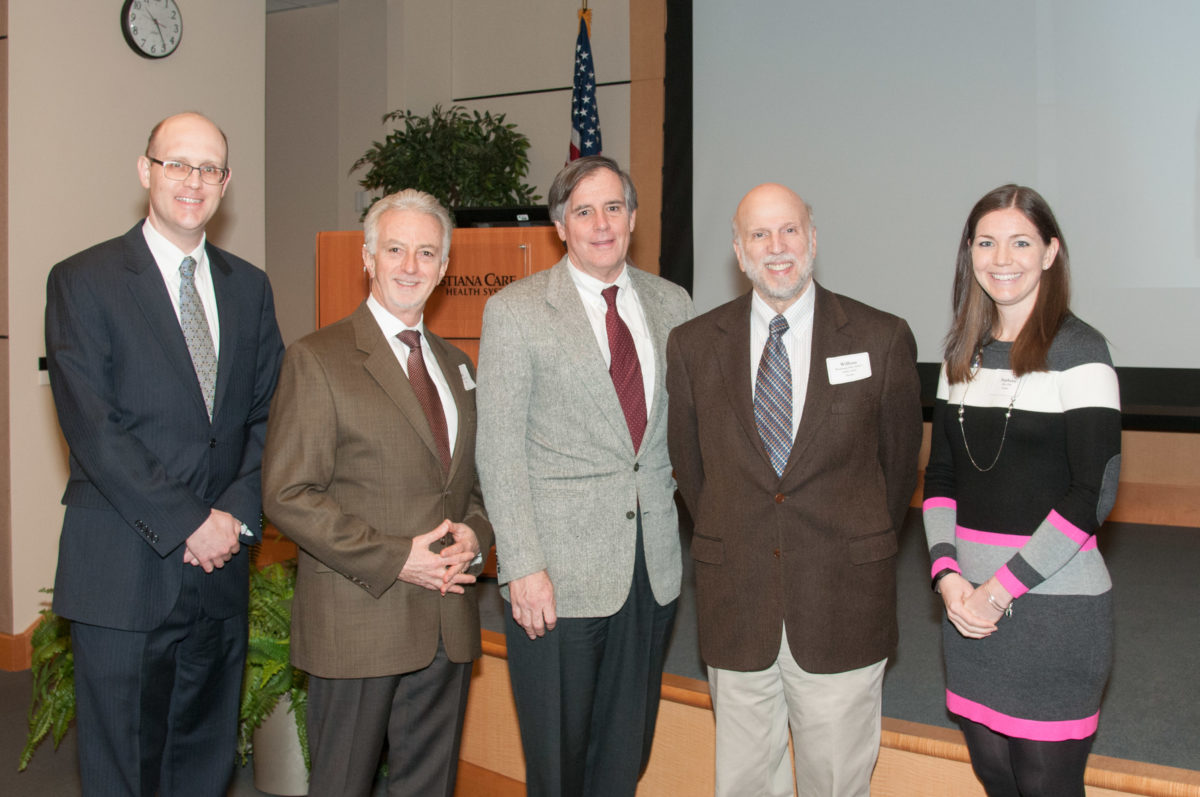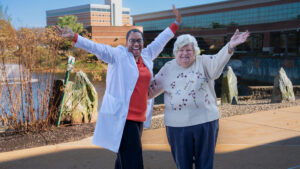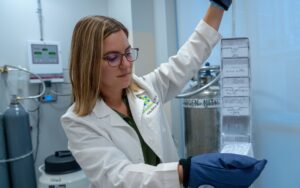The 29th annual Update in Cardiology symposium in March brought together experts from Christiana Care and some of the nation’s leading institutions to discuss new research findings of importance to our clinicians.
There can be a broad range of clinical responses to any disease, but there is a growing movement toward evidence-based care and the creation of best-practice standards, said Kirk N. Garratt, M.D., M.Sc., medical director of the Center for Heart & Vascular Health and John H. Ammon Chief of Cardiology. An evidence-based model helps clinicians achieve the Triple Aim goal of improved quality, improved patient satisfaction and reduced costs. Christiana Care continues to advance in this direction as we seek to use resources wisely and effectively.
Focus on blood pressure
Blood pressure is highly significant for heart health. According to the U.S. Centers for Disease Control and Prevention, high blood pressure increases the risk of heart attack, heart failure, stroke and kidney disease, which has created intense interest in the new hypertension guidelines announced in fall 2017. In essence, hypertension has been redefined as 130/80 mm Hg, rather than 140/90 — the first comprehensive change in blood pressure guidelines since 2003. Speakers including Sidney Smith, Jr., M.D., FAHA, FESC, FACP, MACC, professor of medicine at the University of North Carolina School of Medicine and a member of the expert panel that wrote the new blood pressure guidelines, showed that these recommendations will lessen adverse cardiovascular events for millions of Americans.
William Weintraub, M.D., MACC, FAHA, FESC, formerly chief of cardiology at Christiana Care and now director of Outcomes Research at MedStar Cardiovascular Research Network, MedStar Heart and Vascular Institute, shared that changing practices will be relatively easy to do as the medical community grasps the importance of making the adjustment. Dr. Weintraub said there is a positive cost-benefit ratio in the use of medication to treat high blood pressure, and that the treatment is very affordable when compared with the attendant costs of recovering from an incapacitating stroke. A severe stroke may mean the loss of the ability to work and come with the devastating loss of cognitive and physical abilities, along with the emotional impact for patients and their families, he observed.
Study looks at effects of antiplatelet drugs
Another lecture presented by Usman Baber, M.D., MS, director of clinical biometrics and assistant professor of medicine, Mount Sinai School of Medicine in New York, reminded the symposium that antiplatelet drugs are essential to prevent clotting with stenting. However, clinicians are increasingly recognizing that over time the danger from the risk of bleeding is more profound than the risk for clotting. Today there is strong evidence for limiting the duration for intensively using these drugs after a stent has been placed.
Update in Cardiology also addressed the remarkable advances in the accuracy of small recording devices that patients wear for weeks to capture heart arrhythmias and help diagnose the cause of palpitations. With so many new devices, Stephanie Hart, MSN, NP-C, nurse practitioner for Christiana Care Cardiology Consultants, reported on this rapidly changing field — one that includes auto-activated monitors that can send heart signals to a medical recording station when arrhythmias arise.
Because of stormy weather, several invited speakers couldn’t get to Delaware. Christiana Care IT staff quickly arranged for these speakers to deliver talks remotely from places such as Chapel Hill, North Carolina; Hartford, Connecticut; and Cleveland, Ohio.
“I am grateful to all who made Update in Cardiology a success, given the challenging conditions presented by the powerful nor’easter that blew through the region the week of the symposium, toppling trees, closing airports and limiting traffic along I-95,” said the program director, Andrew J. Doorey, M.D.



